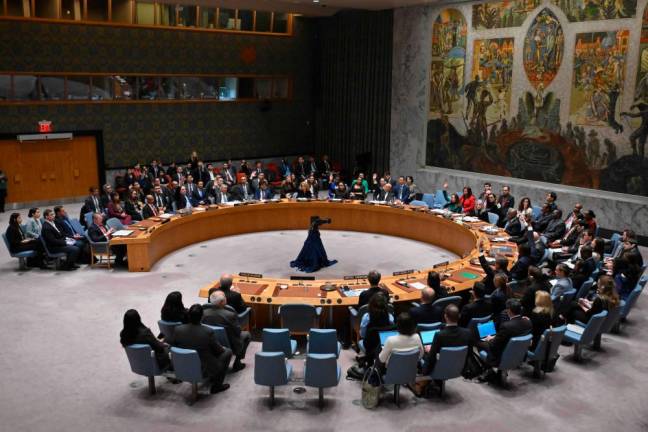JAMMU and Kashmir has been locked down for weeks. Food supplies were earlier reported to be running out. Men, women and children were cut off from the rest of the world with all communications severed. No one knows how long this will last and no one dares ask but the move is unprecedented in scale. The state is under siege?
Welcome to Jammu and Kashmir, a region endowed with implausible beauty. No other words can describe its charm and the state is best described and acknowledged as “paradise on earth”.
If you haven’t been to Jammu and Kashmir, make sure it is in your bucket list, provided the situation there improves and brings Kashmir back to what it is meant for, to provide a once-in-a-lifetime interlude that takes your breath away.
Whether it is spring, summer autumn or winter, Jammu and Kashmir has its own charm, unlike anywhere else in the world. Some people may say that autumn is often sad, but in Jammu and Kashmir, it is delightful.
It is said winters in Jammu and Kashmir have a romantic tinge to it and draws people from around the world, across race, religion and creed. The state’s beauty presents as a land of all cultures, but ironically, it has been caught in a row, for too long now.
This region, which is driven by a sense of togetherness and humanity, has been under perpetual threat with connoisseurs of travel from all over the world watching helplessly.
On Aug 5, India declared that it was revoking a constitutional provision granting certain autonomous powers to Indian-controlled Jammu and Kashmir, setting the stage for new clashes in the disputed region.
The move followed a tense night during which Indian authorities put prominent politicians under house arrest in Srinagar, the state’s capital, and cut off mobile and internet services to the Himalayan region. Thousands of Indian troops were deployed to Jammu and Kashmir before the announcement.
India and Pakistan have been locked in a struggle over Jammu and Kashmir for more than 70 years, and the restive region is back in the world news.
As of Aug 16, news has it that restrictions on the movement of people have been eased in most parts of the region.
The situation has so far remained peaceful, according to senior officials in the state administration of Jammu and Kashmir.
Indian Prime Minister Narendra Modi’s decision to remove the autonomy granted to Jammu and Kashmir to end separatism has been hailed by some and yet others have taken a dim view of this, mostly for the anguish caused to the ordinary Kashmiris. I suppose desperate times call for desperate measures.
One writer declared that the draconian measures such as the imposition of curfew, cutting off the flow of information and arresting political leaders have only vitiated the environment.
It is akin to an undeclared emergency where the common man is the most affected. The fact that there was no dialogue at the ground level before announcing the far-reaching changes in Jammu and Kashmir has only made matters worse.
Another brickbat reads: “In his book on Nationalism, Rabindranath Tagore has said that a nation is not just composed of land and boundaries, but people who live there.
“The same point applies to Jammu and Kashmir. Unless and until the people are ready wholeheartedly to embrace India, it will be another fallacy.”
The majority of voices from Jammu and Kashmir feel that today there is a betrayal in the state as the condition which led to Jammu and Kashmir’s merger with India has been diluted with political divisions and interests.
It is more important to develop trust so that Jammu and Kashmir’s unique culture, customs and rights are safe from external influences.
Identity to a nation or an individual provides the sense of belonging beyond just culture and covers wider criteria such as history, descent, language and religion and Jammu and Kashmir wanting to retain its individuality is only fair.
Meantime, world leaders have declared Jammu and Kashmir’s problem as the world’s most dangerous conflict.
India’s decision has provoked outrage in Pakistan and global worries over a fresh conflict.
Pakistan has so far retaliated by downgrading diplomatic relations with its neighbour and calling on international allies to take its side.
India-Kashmir-Pakistan is not a peculiar example of feuding nations but will be a good specimen to quote how Jammu and Kashmir has been a victim of political pitfalls and people’s voracity, and in the process ravaging its potential as a topmost tourist attraction. Devastation is the order of the day for people on the street.
Malaysia needs to take Jammu and Kashmir as a lesson with the looming threat with warring parties within and outside with the ordinary people being left to their own means.
Senior politician Lim Kit Siang’s call for unity posted on many platforms is timely and should be taken seriously.
His tweet reads, “Call on Malaysians to rise above the fissiparous and centrifugal forces threatening to tear Malaysia apart and reunite to build a New Malaysia which is a top world-class nation of unity, freedom, justice, excellence and integrity”.
How now Malaysia?
Comments: letters@thesundaily.com














